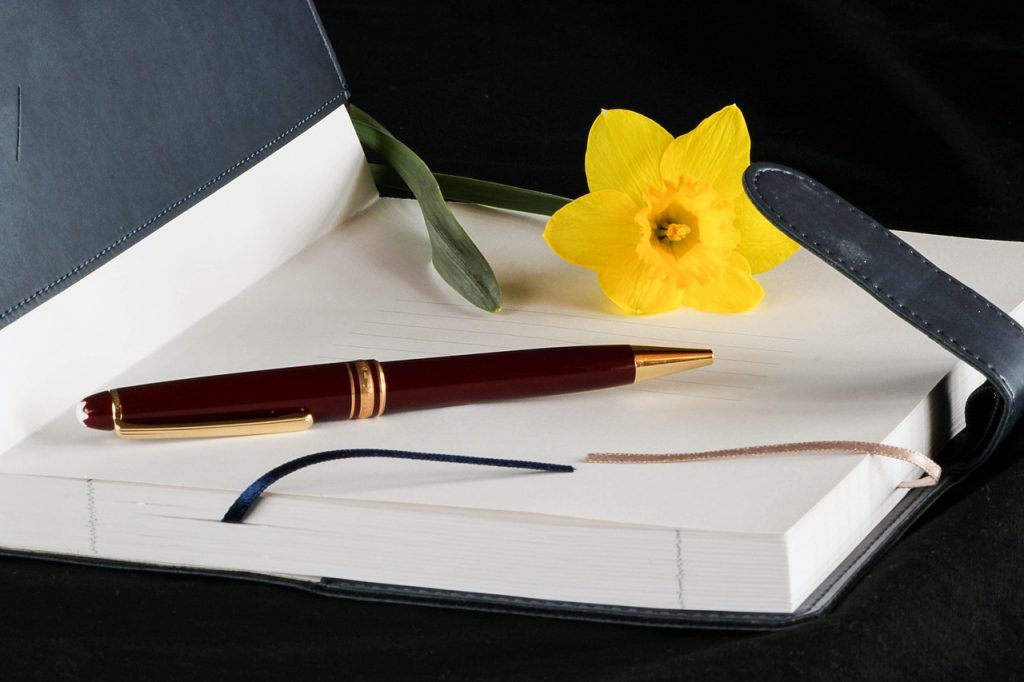As far as journeys go, our perfectly imperfect human life is a long one, yet it goes so quickly.
In the blink of an eye, your youthful exuberance is gone and suddenly you wake up each day with an increasing cacophony of snapping joints and aches.
As life passes by, the experiences you have are the results you can have from your efforts. You can let them pass like a slideshow in your mind or you can keep a journal to record your memories, both good and bad. Journaling will also make you a better you.
Journal Now, Remember Later
Your journal will serve as a record of your life – the ups and the downs, the challenges, and the victories. Life is filled with tiny things that help shape who you are and influence who you will become.
When you record these experiences in your journal, you can look back on them and see how they changed you. Your entries can also highlight how you reached certain decisions as you navigated the rocky waters of life.
Of course, if you choose to, you can also share your journal with loved ones as you grow older and want to provide them with meaningful advice. Your past self can serve as the perfect go-to for your future self and others.
Journal For Easier Emotional Processing
Journaling is an opportunity to process your emotions. It’s difficult to move past them if you cannot allow yourself to fully experience them. If you lose someone, journaling provides you with an outlet to get things off your chest that you always wanted to tell them, or a way to keep significant memories intact.
If you miss a new job or a promotion, journaling allows you to process how you feel about that. Your emotions truly are better out than in. Allowing negative emotions and feelings to linger will have a long-term knock-out effect on your happiness and health.
If you have written something that you don’t want to reflect on, just tear it up or toss it in the fireplace. There is something healing about releasing it in that way, never to return.
Journal Your Successes & Your Failures
Don’t be shy when it comes to celebrating your successes. Your journal is a wonderful place to highlight those beautiful and sometimes unexpected highs. It can be heartening to look back at your journal and see all the wins you have experienced. No one is more critical of you than you are, even though you may feel otherwise.
Having said that, you should also write about your failures to better understand them. Failures offer lessons that we need to learn. If you take the time to journal your failures, you have a record of where things went wrong.
This is something you can review later and learn from. It’s going to help you bounce back from failure and build your resilience, which will help to make you a better version of yourself.
It’s equally as important that you recognize your fallibility. You’re only human, you can’t expect to be awesome all the time. That’s okay! Understanding that will help you stay grounded and realistic. That realization is also permission to fail sometimes. You don’t have to judge yourself; you just have to dust yourself off and try again.
Considerations – Maintenance, Frequency, Format, and Security
Maintaining a journal is simple. You can do it on your computer or on a tablet, in the notes section of your phone, or you could invest in a leather-bound version with archival paper and a special fountain pen.
Some people may prefer to keep an audio (or visual) journal, especially if it’s something they’d like to share with others in the future. Ideally, you will create space in your schedule to write in it on a regular basis. Realistically, a functional minimum is once a week.
You may be hesitant to share honestly in your journal if you think others will read it or see it. No one else needs to know your observations or feelings – consider the security of your journal as you embark on your journey, but don’t obsess over it. If you do want to record the happenings of your life for posterity, consider presenting a condensed version of your private thoughts to your family later.
The purpose of journaling is to let it all out, choosing to deal with your emotions and experiences rather than stuffing them down into your heart and soul until you explode. Make good use of the relief valve that your journaling practice can become and preserve your psyche and your mental energy for living a good and healthy life.

